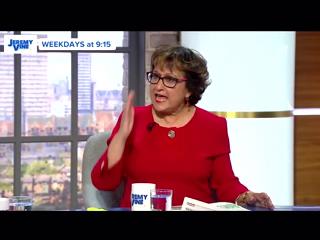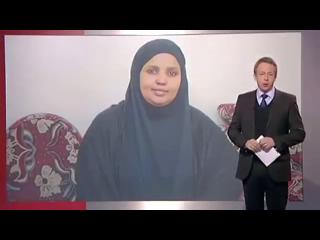May 2020. Hundreds of people gathered in Minneapolis on Tuesday night to decry the in-custody death of George Floyd, which led to the firing of four officers. Emotion and tension ran high as demonstrations became unruly, with windows damaged, graffiti sprayed and a police car vandalized. Officers in riot gear confronted protesters and fired tear… Continue reading May 2020. Racist Police in the USA
Tag: Racism
Tommy Robinson with Jack Dawkins
In an interview with Jack Dawkins, Tommy Robinson says it as it so Patently is – “Fear is Paralysing, it’s Infected the Police, the Authorities; it’s the Islamization of Britain…the Government interfering with the Media, Pressurizing them to remove Dissident Voices, that’s Facism!”. He elaborates, “I’ve not got a Platform in the UK, they used… Continue reading Tommy Robinson with Jack Dawkins
Problems with Diversity Part 14
On September 24, 2015 (LifeSiteNews) – The most common criticism that LifeSite and many of the more effective pro-life, pro-family leaders endure is that we are “divisive”, that we “judge” and that Jesus would not say what we say or that Jesus is more loving and accepting of all people, etc. These criticisms are made… Continue reading Problems with Diversity Part 14
Problems with Diversity Part 13
Social tension can occur as a result of cultural and linguistic differences. In Europe, for instance, tension between the Muslim minority and the largely secular majority is frequently attributed to the incommensurability of Islamic and Secular values. The tensions caused by culture are thought to be exacerbated by economic differences, as European Muslim populations are… Continue reading Problems with Diversity Part 13
Problems with Diversity Part 12
It needs hardly be said that in a world of large and inc reasing waves of population migration, few countries are now without significant minority groups. New York, London, and Toronto are now so mixed socially that each represents ‘the world in one city’. West European countries acquired an average of one million migrants each… Continue reading Problems with Diversity Part 12
Problems with Diversity Part 11
A fierce controversy has broken out recently in political and social science circles about the effect of socially mixed and multi-cultural populations on modern society. At the heart of the argument is an article by Harvard political scientist Robert Putnam discussing the impact of diversity and pluralism (ethnic, religious, linguistic, national and cultural pluralism) on… Continue reading Problems with Diversity Part 11
Problems with Diversity Part 10
Social scientist Robert Putnam, probably best known for his work “Bowling Alone,” on the decline of civic engagement, wanted to know does diversity have an impact on our sense of community? His recent finding suggest that diversity might not make us stronger. In fact, it might just be the opposite. It might make us less… Continue reading Problems with Diversity Part 10
Problems with Diversity Part 9
A total of 40% of people do not agree that diversity benefits British culture, according to one of the broadest pieces of research examining attitudes to immigration. Members of the public involved in the study were also worried over resources and the local impact of immigrants on their communities, with 52% saying immigrants placed public… Continue reading Problems with Diversity Part 9
Tommy Robinson Part 5
The Free Speech Group Tommy Robinson is supporting states – “We want a conversation on Islam. We want to bring parental common sense into the discussion on LGBT. We want to reclaim freedom of speech.” Catherine Blaiklock and Tommy Robinson are supported by Carl Benjamin who rose to prominence in UKIP under Gerard Batten. Blaiklock… Continue reading Tommy Robinson Part 5
Problems with Diversity Part 8
As much as people would like to believe that diversity is always good, it is simply not true. There are two easy answers to this question, and both are intuitively as well as empiracally true. First, diverse groups tend to take more time to set goals, plan, achieve consensus, and gather resources toward accomplishing a… Continue reading Problems with Diversity Part 8









